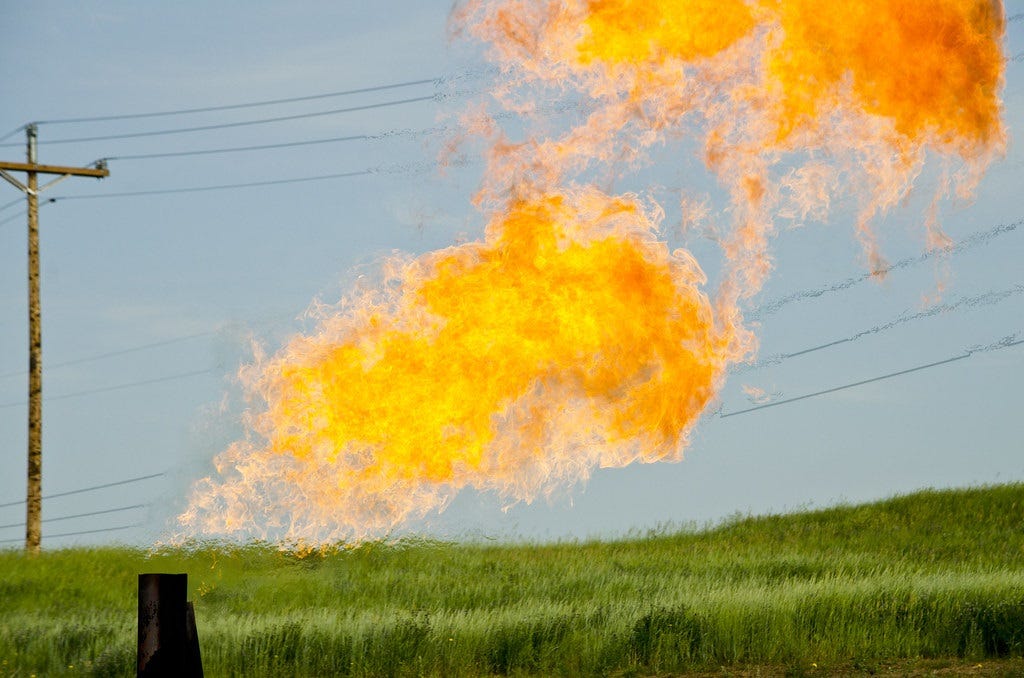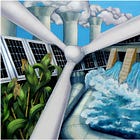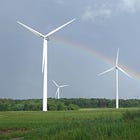Psst, Buddy! Wanna Buy Some 'Certified' Fossil Gas? It's Even Better Than 'Clean Coal'!
You got your greenwashing in my gaslighting!

Let’s say you make your living selling something toxic, like cigarettes, and that everybody knows your product is toxic. Assuming you don’t want to go out of business — which you should, for the good of everyone — you might try to make your product seem friendlier somehow, maybe with ads showing happy young people enjoying a smoke in the great outdoors, at least until Congress bans cigarette advertising. Or you could sell a “cleaner” version of your product, like “low tar” ciggies or vapes that are, oh darn, still addictive and carcinogenic. Deceptive, but some rubes will fall for it!
That brings us to the fossil fuel industry’s latest ploy to preserve its profits even though everyone knows we need to transition away from fossil energy as quickly as possible to get global warming under control: Marketing “responsible” or “certified” fossil gas that’s supposedly produced with the fewest possible leaks of “natural” gas’s main ingredient, methane.
But wait, you are perhaps saying to yourself, I am a savvy well-informed American who knows that methane is a potent greenhouse gas that traps more heat in the atmosphere than an equivalent amount of carbon dioxide. Congratulations, your inner monologue just won bonus points!
And yet, there it is: As DeSmog reports,
Utilities in at least nine states have begun purchasing so-called “certified” or “responsible” gas, which the firms certifying it say delivers fewer methane emissions and other environmental impacts compared to the typical natural gas flowing into a furnace or stove. The Revolving Door Project, a watchdog group that scrutinizes executive branch agencies, has released new research tracking this rising trend among gas utilities.
Big surprise: In the rush to charge ratepayers more for “certified” gas, there’s no real proof that it’s any “cleaner” than what the industry has been moving through pipelines for decades. But it sure sounds neat, like a slim-design cigarette with a multi-stage activated charcoal filter and 30 percent less tar than the leading brand.
The Biden administration has aggressively gone after methane pollution, including the Inflation Reduction Act’s fines for methane leaks, the EPA’s new, tighter limits on methane emissions, and creation of a global methane pledge to get international cooperation on cutting methane. (Now, if we can just get China to sign on. That’s what climate negotiators are for.)
Naturally enough, the fossil gas industry decided to meet the challenge with marketing that looks like action, all the while seeking to increase gas production and exports. Gas producers hire a third-party company to monitor their wells and pumping stations and other infrastructure for leaks, and then the monitors issue a certificate that the gas was produced with minimal leaks. Then the producers sell that “certified” gas at a premium to utilities, which then request rate hikes to cover the “cleaner” gas.
The problem is that there’s not a lot of evidence that the certifications mean any real improvements in leak reduction, according to critics. The standards and the measurements they use aren’t standardized, and are mostly not made public because “trade secret.” What’s more, since their business model depends on the industry paying them to certify gas is produced more cleanly, there’s kind of a big whopping conflict of interest there.
And they may not even catch gas leaks, at least according to a 2023 investigation by Earthworks and Oil Change International of one of the major certification companies, the cheerfully named “Project Canary.” That probe said that Project Canary’s monitors “consistently fail to detect pollution events” and that the company “is misrepresenting the capabilities of its technology.”
Project Canary denied the claims in the report, saying it contained “inaccurate and misleading claims,” but it didn’t offer comments to DeSmog.
One more problem: Even if the gas is being produced with minimal leaks, DeSmog points out, methane
could still leak at any stage thereafter, from compressor stations, pipelines, at LNG export terminals, even in people’s homes. In fact, most methane leaks don’t occur at gas production sites. However, the certification schemes don’t account for that.
“As soon as it leaves the well site, there are seven other hands that it goes through,” [Earthworks corporate accountability campaign manager Josh] Eisenfeld said. Once the gas leaves the well pad and is handed off to another corporate entity downstream, it is often not “certified” at those stages, and there is no guarantee that it is handled with the same care.
But it was super clean when it came out of the ground!
In February, a group of Democratic US senators, led by Ed Markey of Massachusetts, wrote a letter to the Federal Trade Commission calling “certified” gas a “dangerous greenwashing scheme” and asking the agency to create guidelines that “crack down” on deceptive claims by the gas industry.
The letter charged that the gas companies’ green claims are too often “false or misleading due to opaque methodology, unreliable technology, and unacknowledged downstream climate effects of gas combustion,” and that the certifications often amount only to “meaningless designations.”
And remember, the new regulations coming from the Biden administration are already aimed at holding gas producers (and the oil industry too) responsible for cleaning up their act. The bastards shouldn’t be able to charge a premium for (maybe) doing what they’re supposed to in the first place.
[DeSmog / Guardian / American Prospect / Photo: Tim Evanson, Creative Commons License 2.0]
Yr Wonkette is funded entirely by reader donations. If you can, please subscribe, or if a one-time donation is more your thing, that’s all right now, in fact, it’s a gas.







As someone who (a) is a smoker, and (ii) has a gas stove, I would welcome draconian regulation or even banning of both.
Methane leaks aka farting in your general direction